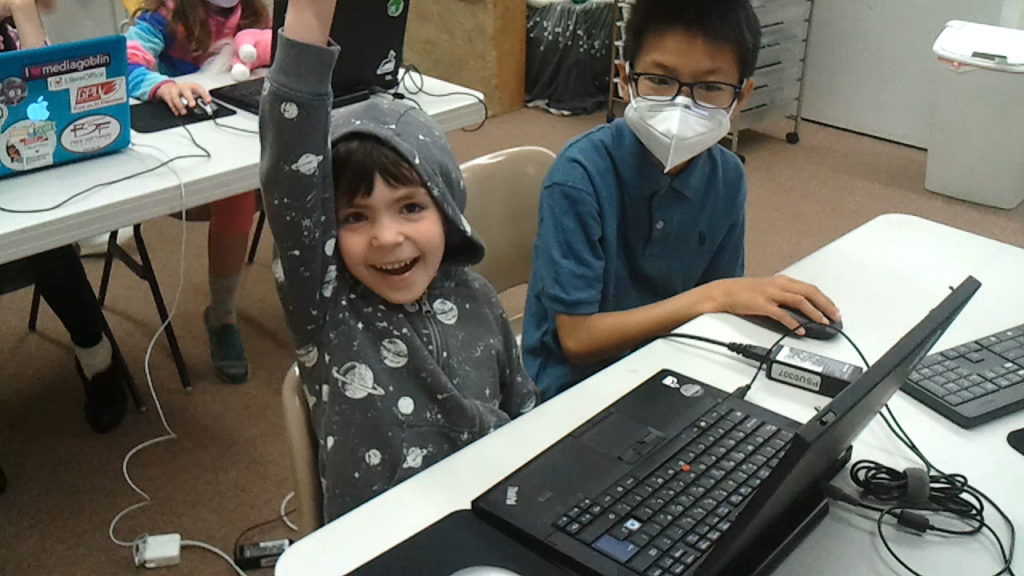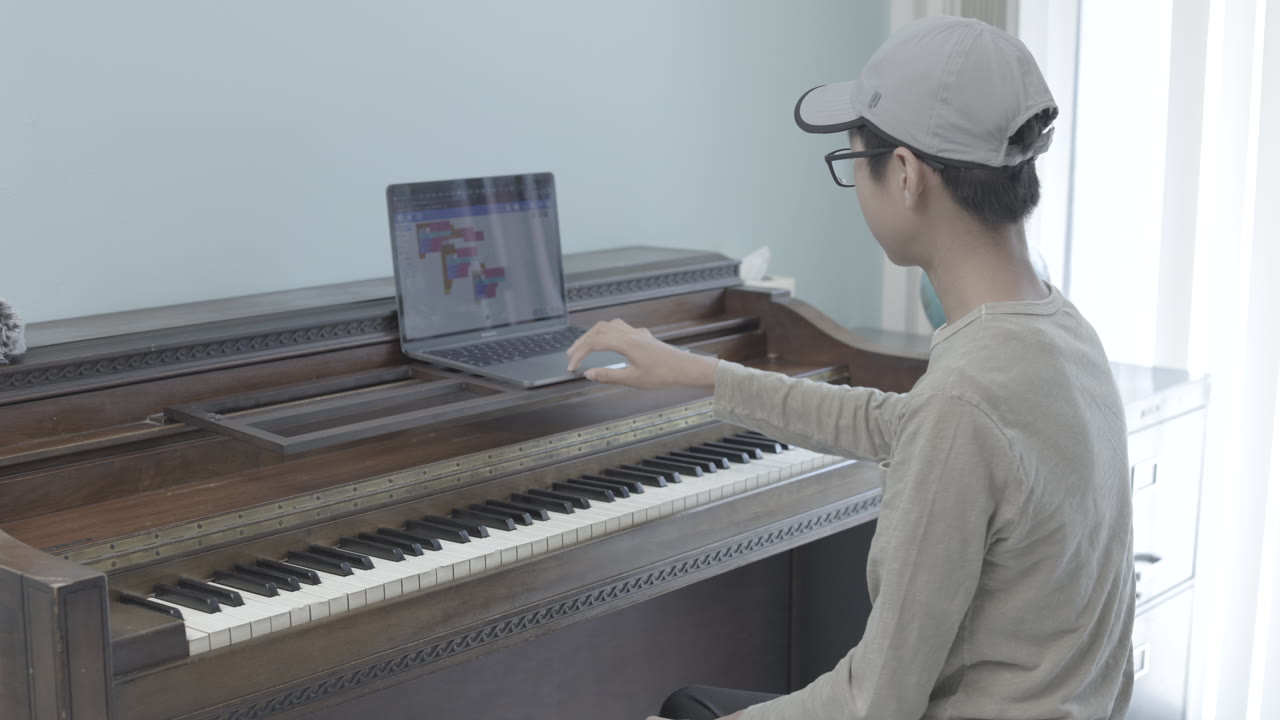Build your own metronome with Music Blocks
What is a metronome?
A metronome is a useful tool with a simple design. Mechanical metronomes typically have an arm that swings back and forth, and the tempo (i.e speed) can be set to certain values. Electronic metronomes often have a few more features, like the ability to set different tones and different meters, such as 3/4 and 5/4, which are not practical with mechanical metronomes. A musician uses this to help keep time while they focus on other aspects of the music during a practice session.
Creating a metronome with Music Blocks
In Music Blocks, creating a basic metronome is easy and fun, and it’s also fairly simple to create more complex metronomes. About a month ago, we had students create metronomes with Music Blocks and then use those same metronomes to practice music on their instruments. Here are the results.
Students came in for a special session. I recently received a grant with the Massachusetts Cultural Council to help fund a project where students showcase their work creating musical programs with Music Blocks and demonstrating how they work. A select group of students came in on a Sunday morning in August to create, talk about, and demo various projects, including this one.

Most students remembered the underlying concept well enough that they just jumped right into coding a new metronome from scratch. For others that needed a little review, they checked the Make a Metronome lesson plan online for a refresher.
A sneak peak at the results: Students playing music together with their own metronome programs
The initial footage, recorded by Red Shade Studios, is just coming in and has yet to be edited, but I am excited to share this clip because it does a great job of illustrating what Music Blocks is all about. Nathan demonstrates his Music Blocks program by playing the piano together with it. After demonstrating one piece in duple meter, he modifies his program to a triple meter to demonstrate a waltz in 3/4 time. Check it out!

Music Blocks metronome
Additional perspective: Empowerment
As a music teacher I am frequently asked what metronome app I recommend. The only “apps” I would be willing to recommend are the near dozen that you can only find on F-Droid. As opposed to most of the apps found in other repositories, these apps are free software, which is best for education, as well as free from advertisements and other distractions. However, most folks are unfortunately unfamiliar with F-Droid. And even if they were, asking a student to create a metronome with Music Blocks has a special advantage: when students create their own program, they feel both a sense of empowerment as well as a sense of accomplishment.
In fact, as I was writing this, I recalled why I chose this particular lesson plan as the focus for one of the videos. During the summer of 2021, during our first in-person Summer Workshop at MAP Family Learning Center, I taught a class teaching the students to create these metronomes with Music Blocks. One student was so happy to be doing the project that he said, “I love metronome!” This same student’s mother, earlier in the year when I once recommended that he and his sister use a metronome at home to practice guitar responded, “Metronome; my old arch-nemesis.”
So, here we have one generation that has a negative view of metronomes and one with a very positive view (see image below for proof). What’s going on here? The difference is this: while the mother was never encouraged to take full ownership over her metronome, her son started his relationship with the metronome as its creator. Creating things is fun and empowering.

Next steps
We’re going to be taking some time over the next few months to edit these videos. The videos are meant to be a helpful and inspiring introduction to programming with Music Blocks. Please stay tuned to hear the results! (<– These puns didn’t miss a beat!)












